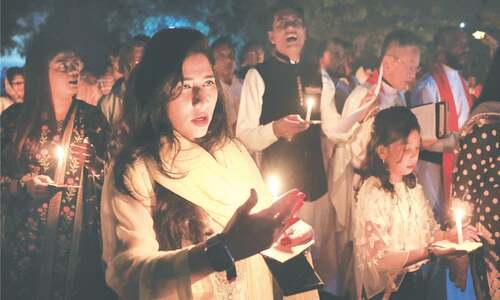
KARACHI: Ali Muhammad Rind, better known as Ali Baba, one of the finest Sindh language fiction writers died after suffering cardiac arrest on Monday. He was 76.
His relatives said he was at home in Karachi watching TV on Monday morning when he suffered a severe heart attack. He was rushed to a hospital but could not survive.
Ali Baba was regarded as a prolific and one of a few ‘original’ writers of Sindhi language who wrote in almost all forms of fiction, got fame but remained impecunious for most of his life.
He was born to Mohammad Ramzan Rind, an employee of the Pakistan Railways posted at Kotri town, on July 8, 1940.
Ali Baba got elementary education in his home town and then worked briefly in the railways department. He also worked in a textile mill and left it as soon as he chose to become a full-time writer.
“He wrote his first short story when he was just 12,” said a close friend of his. “And he kept writing for more than six decades.”
Ali Baba wrote short stories, TV plays and a novel ‘Mohenjodaro’, a widely acclaimed piece that earned him praise for his unique style, unparalleled imagination and poetic diction. His choice to rely on his creative prowess to earn livelihood brought miseries to him and his family — a wife, two daughters and two sons — who remained impoverished for all their life.
“Two of his children have neurological problems, which too kept him disturbed as he had no money to treat them regularly,” said writer Taj Joyo.
And, despite all this, said friends, he had a piece of land in Kotri, which he donated for establishing a girls school.
“He literally fought for the school as he wanted every girl to get education,” said a friend.
Unlike most of his peers, he refused to accept job offers in the government sector. “He refused because he wanted to be a free soul, which he remained despite lifelong hardship he faced.”
“Ali Baba was a storyteller who knew soul of Sindh better than any other fiction writer,” said Joyo.
‘Dungi-a manjh darya’ (Boat sailing in river), one of many TV plays of Ali Baba, who loved to be called as Ali by his friends, won a prize in a drama festival in Munich in 1981. The play was telecast in 1976.
His fiction featured Sindh’s history, marginalised communities and socio-economic conditions. His short story, ‘Dharti Dhikana’ (Uprooted people) highlighted miseries of the 1947 Partition, while ‘Karoonjhar jo qaidi’ (Prisoner of Karoonjhar) focused on Sindhi freedom-fighter Rooplo Kolhi, who fought against the British in Karoonjhar mountains of Thar.
“He was among a few Sindhi writers who had never been accused of plagiarism. And, he had original stories to tell us whenever you demand for one,” said writer Jan Khaskheli.
Three compilations of Ali Baba’s short stories have been published so far out of countless others although many of them have appeared in magazines and are yet to be compiled and published.
Published in Dawn, August 9th, 2016













































